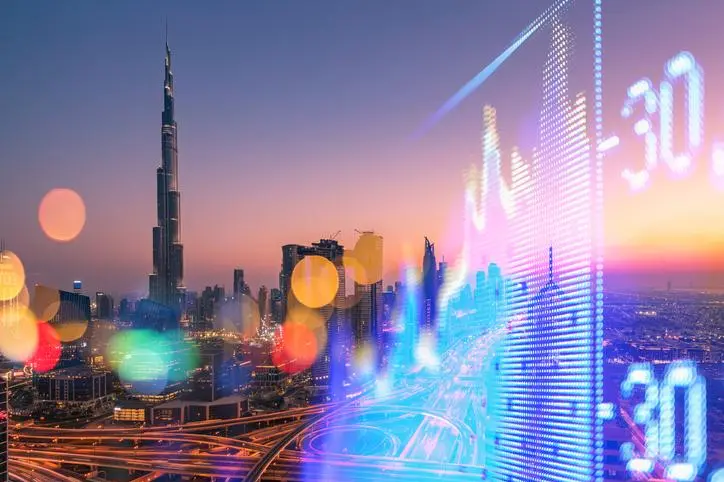PHOTO
Stock markets in the UAE and Saudi Arabia are, like most others across the world, a major casualty of the coronavirus (COVID-19) pandemic, due to the risk-off sentiment.
Year-to-date, the Saudi Tadawul index has declined by around 19 percent. Dubai’s DFM index has fallen 38 percent year-to-date and is still below the 7,000 mark.
The Abu Dhabi ADX index, which has dropped 18.53 percent year-to-date, began picking up and topped the 4,000 mark last week.
With no end in sight to the lockdowns and all company financial projections rendered meaningless, investors in the UAE and Saudi Arabia are looking at cautiously tweaking their stock portfolios to ensure that they can deliver safety as well as growth potential over the longer term.
“While ADX and Saudi Tadawul markets have started recovering somewhat from the lows of mid-March, they are still down from the peaks of January,” Mohammed Ali Yasin, chief strategy officer at Al Dhabi Capital Ltd. in Abu Dhabi told Zawya on telephone.
However, there is doubt as to whether the recoveries are sustainable as it is too early to say when the crisis will pass. In the meantime, the lockdowns have hit the productivity and sales of many companies and have also caused widespread job losses.
Additionally, government revenues of both the UAE and Saudi Arabia are likely to take a hit from the cut in oil production as a result of the deal OPEC+ and other allies have struck to rebalance the market. This could also affect governments’ capacity to provide financial support to their economies through 2020.
“In the current scenario, a bottom can be called safely only if the number of recoveries from coronavirus exceeds the number of new cases daily,” Yogesh Khairajani, investment research analyst at Dubai-based Century Financial, told Zawya.
As investors’ scramble for safe harbor continues, the focus is gradually shifting to strategies that take into account an eventual recovery in business and economic activity.
“Markets are still volatile as there is no clear indication as to when the lockdowns will end. So as an investor, it is risky if your strategy is to trade volatility. It is better to take a long position for up to a year when the valuations are down,” said Yasin.
Defensive and safe stocks
Fortunately for the prudent investor, there are some stocks that pick themselves, in sectors that are deemed traditionally defensive and safe, and some that are seen to directly benefit from the crisis caused by the contagion.
Telecoms, always a defensive stock in UAE and Saudi, has benefitted from the lockdown as people resort to voice calls and data to keep in touch with families and also to carry on office work.
Within the Saudi market, the telecoms sector is reckoned to be a growth sector as many companies across the region have implemented work-from-home strategies.
“In the coming months, the work-from-home trend could gather steam as people fear to venture out due to infections. Saudi Telecom is the dominant company and will benefit from more data consumption,” said Khairajani.
According to a recent report from Al Rajhi Capital, profits of telecom companies are set to jump, boosted by data usage and lower interest cost.
“We raise our growth estimates in 2020 as consumers upgrade data packages and businesses adapt to a new online structure,” it said.
Saudi Telecom Co. has gained over 10 percent to SAR 91 since the lockdown began in the kingdom last month. On ADX, Etisalat has climbed 7 percent since the start of the month.
Strong sectors
Other sectors that have performed well in the past few weeks are food and consumer staples companies.
“Other Saudi companies which are safe in the current turmoil are Abdulla Al Othaim Markets, Saudi Pharmaceutical Industries, Savola Group, Wataniya Insurance and Dallah Healthcare,” said Khairajani.
Jaap Meijer, managing director and head of research at Arqaam Capital, said in a LinkedIn post that he maintains a very defensive investment strategy.
“We play a combination of being a net beneficiary of COVID-19 outbreak (milk producers, gold), sustainable dividend payouts (telcos, utilities), strong support from a cash position or tangible capital base…” he wrote.
On the other hand, some sectors are seen to be risky.
“I would stay away from real estate and many banks at the moment, except for First Abu Dhabi Bank on ADX and Emirates NBD on DFM,” said Yasin.
In Saudi Arabia, “Al Rajhi Bank is sound as it is mainly a mortgage lending and retail bank and exposure to corporate lending is relatively limited,” he added.
In addition, investors whose strategy is dividend capture would be advised to rethink and not plan for dividends for 2020, as many companies which have strained cash flows have begun digging into their reserves.
(Writing by Brinda Darasha, editing by Seban Scaria)
#COVID19 #INVESTMENT #EQUITIES #UAE #SAUDI
Disclaimer: This article is provided for informational purposes only. The content does not provide tax, legal or investment advice or opinion regarding the suitability, value or profitability of any particular security, portfolio or investment strategy. Read our full disclaimer policy here.
© ZAWYA 2020





















